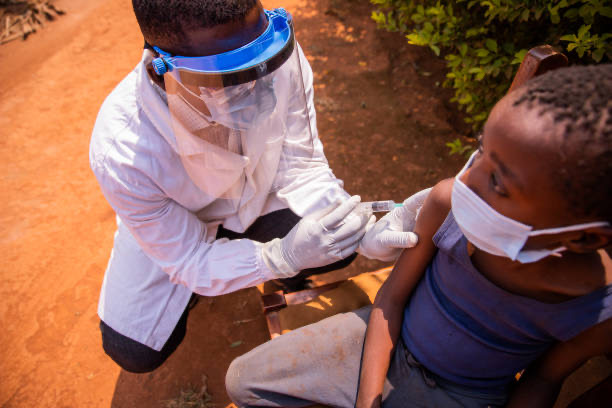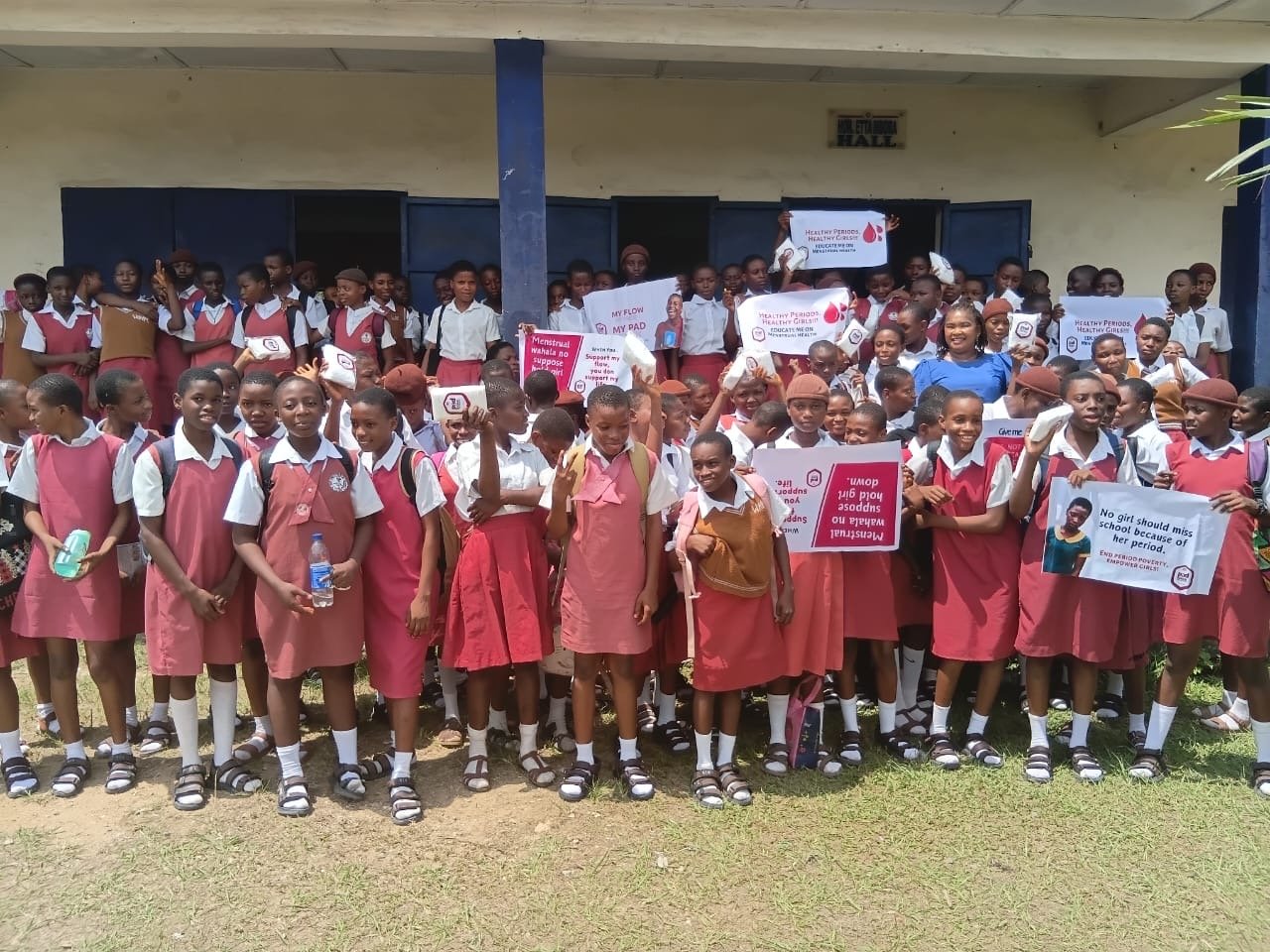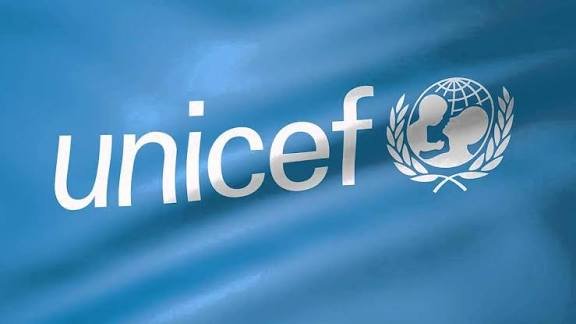Health Officer Vaccinates a child against Cholera.
By Ita Williams, Calabar
Cholera, a centuries-old disease that continues to plague vulnerable communities, remains a major global and national public health concern, experts have warned.
They said this during a media roundtable with the Nigeria Union of Journalists (NUJ), Cross River State Council, organised by a Non-Governmental Organisation, Cochrane Nigeria, in collaboration with the Institute of Tropical Diseases Research and Prevention, Calabar, Cross River State.
One of the resource persons, Dr. Ekong Udoh, a Pediatric Gastroenterologist at the University of Uyo Teaching Hospital, said cholera continues to claim tens of thousands of lives annually despite being preventable.
“Cholera is an acute diarrhoea infection caused by the bacterium Vibrio cholerae. Globally, we record about 2.9 million cases every year, with an estimated 95,000 deaths,” Dr. Udoh explained. “Unfortunately, Africa alone accounts for over 90% of global cholera morbidity and mortality, and Nigeria is one of the countries where outbreaks remain recurrent.”
The event, which was held on Tuesday at the School of Nursing Extension, Moor Road, Calabar, sought to educate journalists on the burden of cholera, its risk factors, treatment, and preventive measures.
According to Dr. Udoh, cholera remains endemic in several regions, including Africa, Asia, the Middle East, and parts of South and Central America. Outbreaks are particularly common in countries with fragile health systems and poor sanitation.
“In Nigeria, cholera is endemic, with periodic outbreaks occurring more frequently in the northern parts of the country,” he said.
“In 2009 alone, northern Nigeria recorded 260 deaths. More recently, in 2024, the country documented 4,809 suspected cases and 156 deaths.”
He stressed that climate change is making the fight against cholera harder. “Rising floods and environmental changes are contributing to larger, deadlier outbreaks, even in countries that had long controlled the disease. We are now seeing cholera re-emerge in areas where it hasn’t been reported in years,” he warned.
Dr. Ekong further explained that Cholera spreads primarily through ingesting contaminated food or water, often due to poor sanitation and overcrowded living conditions.
Internally Displaced Persons (IDP) camps, rural communities without clean water, and urban slums remain hotspots, he said, adding that “the bacteria adhere to the small intestine, releasing toxins that trigger massive fluid secretion.
“What follows is profuse watery diarrhoea often described as ‘rice-water stools,’ which can cause life-threatening dehydration within hours.”
He noted that about 75 percent of infected individuals may not show symptoms but still shed bacteria in their stool for up to two weeks, putting communities at risk. Of those who develop symptoms, 20% experience severe dehydration marked by intense thirst, sunken eyes, muscle cramps, wrinkled skin, and reduced urine output. If untreated, cholera can cause acute kidney failure, shock, coma, and death.
“The case fatality rate of untreated cholera is as high as 30 to 50 percent ,” Dr. Udoh emphasized. “But with prompt treatment, survival rates are extremely high.”
On treatment and challenges, Dr Udoh explained that the mainstay of treatment is aggressive fluid replacement. Stating that patients with mild to moderate dehydration are given Oral Rehydration Solution (ORS), while those with severe dehydration require intravenous fluids such as Ringer’s lactate or normal saline.
“ORS is a life-saving intervention. A simple mixture of clean water, sugar, and salt can save lives when used promptly,” Dr. Udoh said.
“But the challenge is that many cholera patients are in remote areas where access to healthcare is poor.”
He also pointed out the challenge of emerging antibiotic resistance. “Drugs like tetracycline and doxycycline are used in treatment, but we are already seeing strains that resist these medicines,” he added.
Experts agree that prevention is more effective and cheaper than treatment. According to Dr. Udoh, the cornerstone of cholera control is a multi-sectoral approach focusing on water, sanitation, and hygiene (WASH).
“Simple measures like boiling drinking water, washing hands with soap, and proper food handling can drastically reduce diarrhoeal diseases,” he explained. “Studies have shown that regular handwashing can reduce diarrhoea cases by 26 to 62%”
He also called for improved surveillance, mapping of high-risk areas, and rapid response systems during floods and outbreaks. Vaccination, he noted, remains a powerful tool.
Oral cholera vaccines such as Shanchol and Euvichol provide up to 65% protection for five years and are considered suitable for mass immunization in endemic regions.
“Oral cholera vaccines can provide short-term protection of up to 90%,” he said. “They are particularly effective when combined with water and sanitation interventions.”
Dr. Udoh’s presentation reverberated worldwide, with global health agencies calling on governments to consider cholera prevention as part of broader health system strengthening.
“Accelerating cholera prevention through water, sanitation, and hygiene is not just a medical issue; it is a political one,” he noted. “Communities without safe water remain at constant risk.”
He urged government agencies, development partners, and civil society to intensify health education campaigns, strengthen infrastructure, and ensure rapid medical response during seasonal floods.
“Cholera is preventable, treatable, and controllable,” he concluded. “What we need is political will, community engagement, and sustained investment in public health.”
Dr. Ekpereonne Esu, a public health Physician, on his take, “Frequent Cholera Epidemics: Can Vaccines Help”? Dr. Esu explained that vaccines represent an essential line of defence in controlling cholera epidemics.
“Vaccines act like a practice session for the body’s immune system. They train the body to recognise and fight off the bacteria before it causes severe illness,” Dr. Esu said.
“Think of your body as a castle and your immune system as the guards. A vaccine shows those guards what the enemy looks like so that they are ready when the real attack comes.”
In a brief history, Dr. Esu enumerated that Cholera vaccines have existed for decades, but earlier injectable versions proved weak and offered limited protection.
According to Dr. Esu, scientific advances showed that protective immunity is best achieved through oral vaccines.
“Today, oral cholera vaccines (OCVs) are safe and effective. They are recommended by the World Health Organisation (WHO) as a complementary tool alongside water, sanitation, and hygiene interventions in endemic regions,” he explained.
He further stated that several oral cholera vaccines are prequalified by WHO and widely used across the globe.
He said Dukoral, first licensed in 1991, is a two-dose inactivated vaccine mainly used by travellers from developed countries. However, its high cost and need for a buffer solution limit its use in mass campaigns in low-resource settings. Dr. explained further.
Shanchol, a bivalent killed whole-cell vaccine widely deployed in outbreak settings. It requires two doses but offers strong long-term protection. Its production was discontinued in December 2023, creating supply concerns.
Euvichol and Euvichol-Plus, according to Dr. Esu these are similar to Shanchol, prequalified by WHO, and are key vaccines in the global stockpile. Euvichol-Plus comes in a plastic container, making storage and transport easier.
Euvichol-S, a new simplified oral vaccine prequalified by WHO in April 2024. It is designed to boost global supply and meet urgent demand during epidemics.
“These vaccines can be given to individuals from one year of age and are safe for children, pregnant women, breastfeeding mothers, and even patients with conditions like tuberculosis or HIV,” Dr. Esu added.
On effectiveness backed by evidence, Dr. Esu narrated that, “Scientific trials involving nearly half a million participants across India, Bangladesh, and Peru have confirmed the effectiveness of oral cholera vaccines.
Such as Dukoral, he said two doses reduced cholera cases by 76% at two-year follow-up in children and adults.
Shanchol (1 dose): Reduced cholera cases by up to 40% at six months, and severe dehydrating cholera by 63%.
While Shanchol (2 doses): Offered long-term protection, reducing cases by 80% at five years. Dr. stressed.
“These results are highly encouraging,” Dr. Esu said. “A two-dose regimen can provide years of protection, while even a single dose significantly reduces the risk of severe disease.”
He noted that the safety profile is robust, with only mild side effects such as abdominal pain, nausea, or diarrhoea, which usually resolve within days.
Despite their effectiveness, vaccines alone cannot end cholera, Dr. Esu cautioned. “They are not a silver bullet. Vaccination must go hand-in-hand with improvements in water, sanitation, and hygiene,” he said.
He further explained that, “One pressing challenge is supply. With Shanchol’s production discontinued in 2023, global reliance on Euvichol is increasing, raising concerns about whether demand can be met during emergencies”
“Future innovations could change the landscape. Researchers are working on a cholera conjugate vaccine, which could provide durable protection in young children, and DuoChol, a capsule-based oral vaccine that is more stable, lighter to transport, and easier to distribute”
“The International Vaccine Institute (IVI) is leading efforts to accelerate the development and introduction of affordable vaccines tailored for low- and middle-income countries,” Dr. Esu noted.
On why Vaccination matters, Dr. Esu said, Nigeria recorded 4,809 suspected cholera cases and 156 deaths in 2024 alone, according to the Nigeria Centre for Disease Control (NCDC). With Africa accounting for over 90% of global cholera deaths, experts say vaccination is an urgent public health priority.
“Cholera kills quickly, but it is also preventable,” Dr. Esu stressed. “Oral vaccines are highly cost-effective and, when combined with safe water and sanitation, can drastically reduce both the frequency and severity of outbreaks.”
In his key point, Dr. Esu maintained that “Vaccines may not replace the need for clean water and sanitation, but they are a proven, cost-effective shield against one of the world’s oldest and deadliest diseases”
Dr. Esu concluded: “The science is clear – oral cholera vaccines save lives. What we need now is political will, stronger supply systems, and community acceptance to make them available where they are needed most.”
In her remark, the Director of the Institute of Tropical Diseases Research and Control at the University of Calabar, Prof. Angela Ekanem Oyo-Ita, has urged Nigerians to adopt proactive hygiene practices and participate fully in routine immunisation programmes as part of efforts to eliminate cholera in local communities.
Prof. Oyo-Ita, who also doubles as the Director of Cochrane-Nigeria, maintains that both rural and urban dwellers have a responsibility to safeguard themselves and their communities from the deadly waterborne disease.
“Maintaining personal hygiene and taking part in routine immunization programmers can help eliminate cholera in our communities,” she said. “I am calling on everyone to join this fight so that together we can rid our communities of this killer disease.”
She further commended the role of the media in raising awareness, noting that the timely dissemination of health information remains vital in curbing outbreaks.
“I want to commend the media for spreading this message to our people,” she added. “Without information, prevention becomes impossible.”
Public health experts have repeatedly identified poor sanitation, unsafe drinking water, and weak immunisation coverage as the major drivers of recurrent cholera outbreaks in any community.













